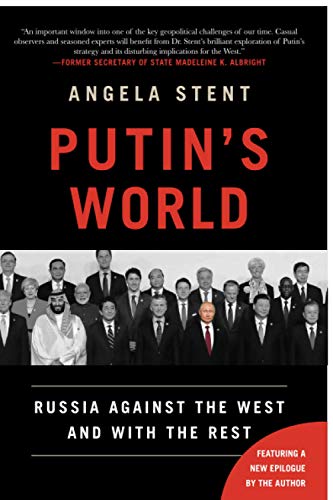At the New York Times, "Shelling Halts Mariupol Evacuation as Conditions Deteriorate":
LVIV, Ukraine — Frantic efforts to rescue civilians from the worsening violence in Ukraine came under direct attack by Russian forces on Sunday as at least three people were killed in shelling outside Kyiv. Russian forces were struggling to advance on multiple fronts. The Ukrainian military said it was successfully defending its position in fierce fighting north of Kyiv, the capital, and holding back Russians from the east, where President Vladimir V. Putin’s forces bogged down in clashes around an airport. The United Nations refugee agency said that 1.5 million people had fled Ukraine in the 10 days since Russia’s invasion began, making it the fastest growing refugee crisis in Europe since World War II. In southern Ukraine, the unexpected Ukrainian success of defending the critical port city of Mykolaiv after three days of intense fighting underscores two emerging trends in the war. Russia’s failure to seize Mykolaiv and other cities quickly, as President Vladimir V. Putin of Russia appears to have intended, is largely a function of its military’s faltering performance. Russian forces have suffered from logistical snafus, baffling tactical decisions and low morale. But it is the fierce and, according to many analysts, unexpectedly capable defense by Ukrainian forces, who are significantly outgunned, that has largely stalled the Russian advance and, for now, prevented Mykolaiv from falling into Russian hands. Here are the latest developments:* A Russian force advancing on Kyiv fired mortar shells on Sunday at a battered bridge used by evacuees fleeing the fighting, sending panicked civilians running and killing four: a mother and her two children and a family friend traveling with them. * A planned evacuation of Mariupol — a port city of a half-million people that has become a key battleground in Russia’s objective to capture Ukraine’s entire southern coast — was halted for a second consecutive day amid “intense shelling” by Russian forces that have encircled the city, the mayor’s office said. Residents are facing increasingly dire conditions in the city, which has been cut off from food, heat and electricity for days. * Amid antiwar rallies across Russia, the police said more than 3,000 people were arrested, the highest nationwide total in any single day of protest in recent memory. An activist group that tracks arrests, OVD-Info, reported detentions in 49 different Russian cities. * The Biden administration is studying how to supply Russian-made Polish fighter jets to Ukraine, U.S. officials say. President Volodymyr Zelensky is asking for more lethal military aid, especially Russian-made aircraft that Ukrainian pilots know how to fly. Russia threatened countries that allow the Ukrainian military to use their airfields. * Hundreds of thousands of homes across eastern and southern Ukraine had their gas turned off on Sunday as the areas faced heavy fighting, according to Ukraine’s Gas Transmission System Operator. * Mr. Zelensky repeated his calls for NATO to enforce a no-fly zone over his country to stop Russia’s aerial attack, saying, “It’s easy when you have the will.” NATO has been unwilling to take such a step, fearful of triggering a wider war with Russia...











